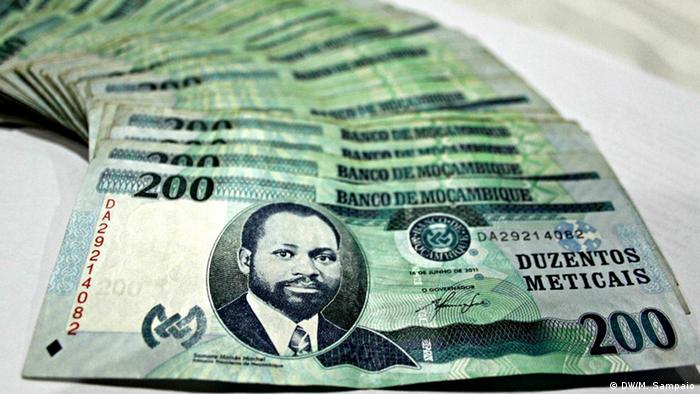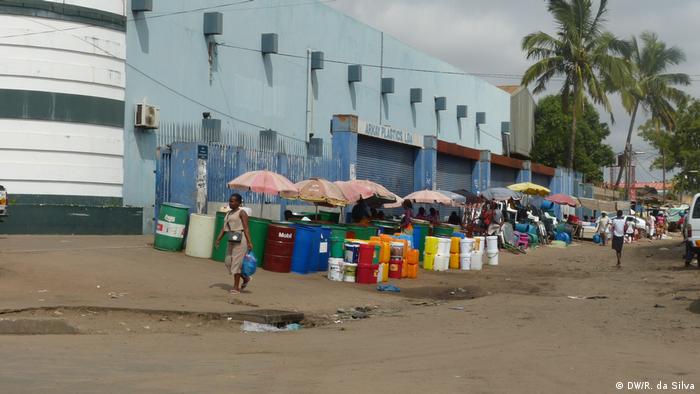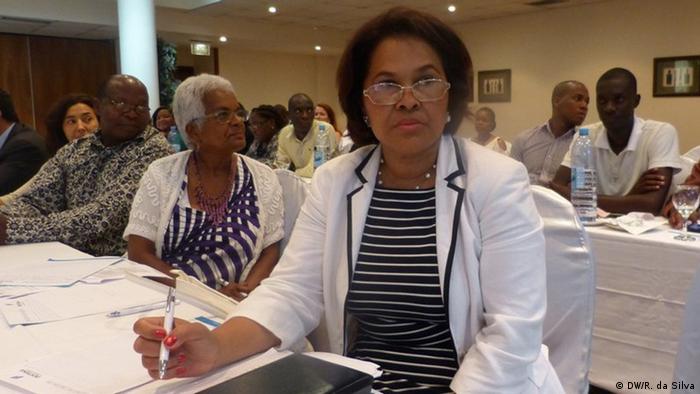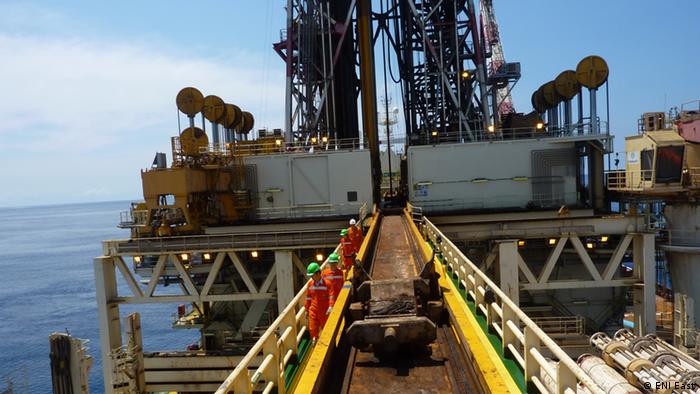In Mozambique, the financial crisis has escalated dramatically. The resistance against corruption and mismanagement in the resource-rich country’s growing protest movements in position – also internationally.

“In government hospitals there are no drugs and in the maternity wards, there are no gloves. The situation is becoming more serious,” says Eufrigínia dos Reis, activist for the “Grupo democrático moçambicano da Dívida”, the Mozambican group against the debt. She is fighting for the government in Maputo, hid billions of debt that were included in 2015 at the Parliament, finally declared to be illegal. “Those responsible must be prosecuted. But our government protects the perpetrators. It is enjoyed their party. Two billion dollars are drained away and the mine is now to pay the people!” dos Reis writes in the DW-Interview.
At the beginning of 2016 had come to light that the then government had authorized bypassing of the Parliament’s loans of three semi-state enterprises in total amount of nearly two billion dollars. The money came from various international banks, and should mainly be used for the procurement of military goods. But the came to the part not in the case of the company, large portions of the billions are gone with the wind. Although the new President, Filipe Nyusi, the enlightenment promised, but nothing has happened so far. The “hidden debt” plunged Mozambique into a financial crisis whose effects are still felt today, and the country is in a dramatic situation.

Scene of street in Mozambique’s capital, Maputo
“Those responsible must pay, not the Mozambican people.”
So do not want to accept the Mozambicans longer. Different groups in civil society have formed against the lack of transparency of the debt policy in the country. You want to force the government, the case of the leaching of billion of legal work and to bring the perpetrators to responsibility. Activist Eufrigínia dos Reis and your group were looking for this concern, international allies, and the global campaign “Jubilee Dept Campaign” (JDC), based in London, joined recently.
JDC coordinator Tim Jones said in an interview with DW: “The Mozambican activists are right: It is illegal loans. The person responsible for the Mozambican government, the process needs to be made, but also to the foreign banks, which lend illegal loans, and approved. You should pay the bill – and not the Mozambican people.”
Support from Europe
Eufrigínia dos Reis adds: “the Mozambican parastatal companies that have misappropriated the money, have to pay. Our proposal is to provide a relief Fund for the victims of the financial crisis, in the, these companies Deposit, as well as the international banks, whether they sit in London or elsewhere.”
About a hundred British MPs have already signed a common Petition of the Mozambican debt to the activists and the JDC, which calls for the criminal prosecution of those responsible. Eufrigínia dos Reis says, Mozambican deputies should take an example from their British colleagues: “If British parliamentarians for the people of Mozambique can use, then our own members can’t just keep quiet.”

Eufrigínia dos Reis, activist, fighting for debt justice in Mozambique
The financial crisis in Mozambique is coming to a head
The case of the hidden debt brought the already unstable financial system of Mozambique finally falter: Since 2017, the country is, in spite of several debt – to-cuts- to be insolvent. Since then, Mozambique is cut off of international credit lines. The government in Maputo is trying to the chronic deficit in the budget of Mozambique on loans to the International monetary Fund (IMF) and, above all, through loans to private, in Mozambique banks to compensate. But, recently, the no Mozambican bonds to buy more. The risk of a sovereign default is too large, it is part of the banks.
Only a few weeks ago tried, the government of Mozambique a loan of 1.5 billion Meticais (about 23 million euros) on the market place, but it was only a fraction of them sell for about three million euros. “A disaster for the public finances,” says financial expert Adérito Caldeira from the Mozambican online portal “@Verdade” (“truth”) in the DW-Interview. “If this goes on, we sit here high and Dry.”
Caldeira feels it is now once again ruled out that even the IMF aid soon loans for Mozambique on ice: “The government tried to bring long get the impression that the crisis is over and that the economy uphill,” he says. In reality, the situation is much more serious, especially since it can do the government, obviously, is to meet current payment obligations. So many officials would have received in the whole country, for example, still no salary for the month of July, says Caldeira.

Gasföderung in Northern Mozambique: revenues are behind expectations
Too little tax from the Gas and Oil business
To the excessive debt of revenue – an explosive constellation: The organization of the “Centro de Integridade Pública”, CIP, which campaigns for more transparency in Mozambique, recently published a study, according to which Mozambique is, for years, unable to control falling tax to collect. Especially the large international corporations, the Oil and Gas in Mozambique, were hardly up to their obligations. Because the state is unlikely to be able to check your activities and balances.
“The authority is supposed to control the Gas and oil deals, is completely overwhelmed,” says CIP-assistant Fátima Mimbire in the DW-interview. It is quite commonplace that the international Oil and gas companies, luxury travel, or villas for your Manager that there is no objection as operating costs drop. “As a result, the Mozambican government lost revenue in the millions. Corruption and mismanagement of the economy and generally weak governance make the Situation worse,” says Fátima Mimbire.
The Mozambican stocks of crude oil and Gas are huge. Alone, the US company Anadarko completed in the past with the Mozambican government agreements on the promotion and liquefaction of natural gas in the amount of 26 billion Euro. From 2025 to jump out from the Deal a year up to two billion euros for Mozambique, said in Maputo “as long As we are not able to wait. The people need a functioning health and education system,” said activist Fatima Mimbire.
Staff: Raquel Loureiro

